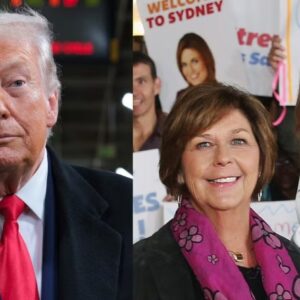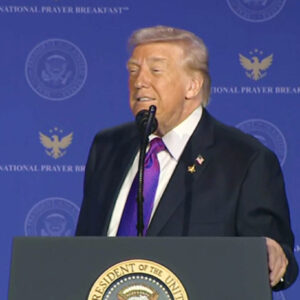
The Supreme Court decided on Monday to hear a Republican-led appeal to U.S. campaign finance regulations that limit the amount of money political parties may spend on behalf of specific candidates.
The case, National Republican Senatorial Committee v. Federal Election Commission, was originally brought before the court by the National Republican Senatorial Committee (NRSC), the National Republican Congressional Committee (NRCC), and two Senate Republican candidates running for office at the time, including now-Vice President JD Vance.
It is about whether federal limitations on campaign expenditure by political parties violate free speech safeguards under the First Amendment of the Constitution.
Petitioners asked the Supreme Court to consider the issue, claiming that the spending limitations “severely restrict political party committees from doing what the First Amendment entitles them to do: fully associate with and advocate for their candidates for federal office.”
A decision by the Supreme Court’s 6-3 conservative majority could have far-reaching consequences for campaign spending in the United States, undermining the Federal Election Campaign Act of 1971, a law passed by Congress more than 50 years ago to limit the amount of money that can be spent on behalf of candidates.
The case comes as federal election spending reaches all-time highs: presidential contenders in 2024 raised at least $2 billion and spent around $1.8 billion, according to FEC data.
The challenge is likely to be one of the most high-profile cases handled by the Supreme Court in the future term.
The Trump-led Justice Department has also stated that it will side with the NRSC in the case, placing the government in the unprecedented position of fighting against legislation established by Congress.
Meanwhile, the Democratic National Committee, Democratic Senatorial Campaign Committee, and Democratic Congressional Campaign Committee have requested to defend a lower appeals court judgment that upheld the limitations in 2024.
The Justice Department cited free speech principles as the justification for agreeing with the NRSC, stating that their decision reflects “the rare case that warrants an exception to that general approach” of supporting federal legislation.
The Supreme Court had a spectacular day on Friday, the final decision day of the term, with the justices reigning in judicial power and providing a triumph for parents in the ongoing cultural warfare.
The Supreme Court’s more contentious judgments were divided along ideological lines. Liberal justices occasionally dissented with sharp rebukes, while the Trump administration welcomed what it saw as historic victories.
In the most high-profile case of the day, the Supreme Court halted the practice of judges issuing broad injunctions that affect the entire country rather than simply the parties engaged in a dispute.
The injunctions, sometimes known as “nationwide injunctions,” have been a source of aggravation for President Donald Trump, as courts have sided with plaintiffs and blocked crucial portions of his program.
The dispute emerged after numerous judges issued injunctions preventing Trump from carrying out his birthright citizenship scheme. Rather than asking the Supreme Court to rule on the merits of the proposal, which has been unanimously rejected by courts, Trump urged the court to end the injunction practice.
The Supreme Court’s 6-3 ruling allows judges and litigants to pursue extensive relief through alternative methods, like class action lawsuits, now that the court has restricted national injunctions.
The Supreme Court postponed its decision on Louisiana’s congressional maps, signaling that it required a few more questions answered at oral arguments in the autumn.
The postponement implies that Louisiana’s voting district plan, which includes majority-Black districts, would remain unchanged until the 2028 election cycle or later.
The Supreme Court is now slated to wind down in preparation for its summer holiday, though it is still likely to issue some pending rulings before the new term begins in October.





